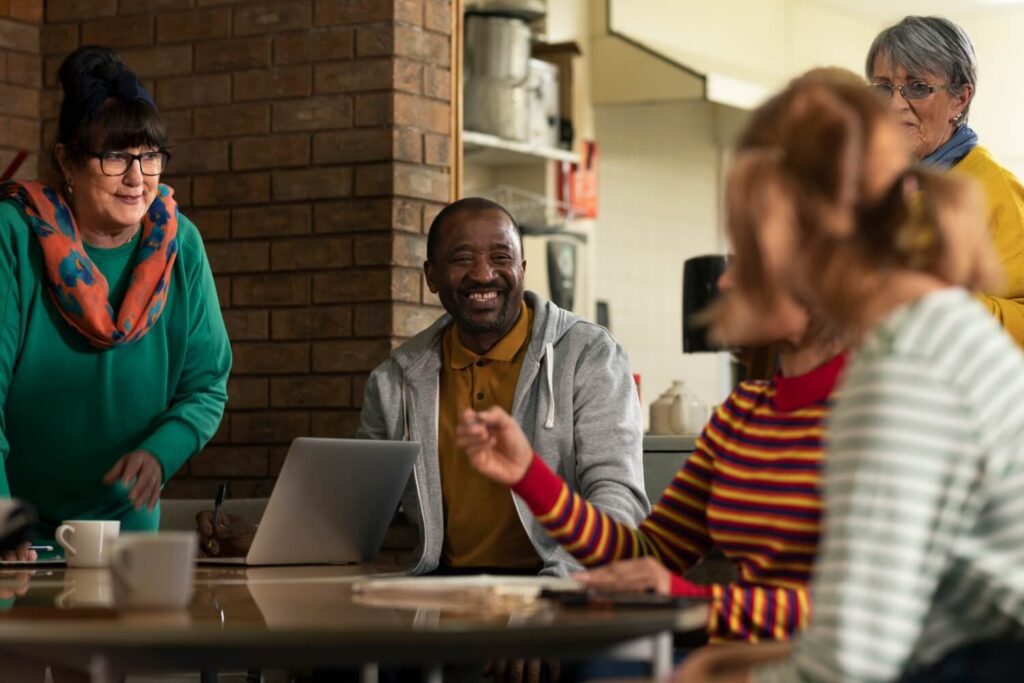Operation Recovery accelerates mission impact with Bonterra Apricot
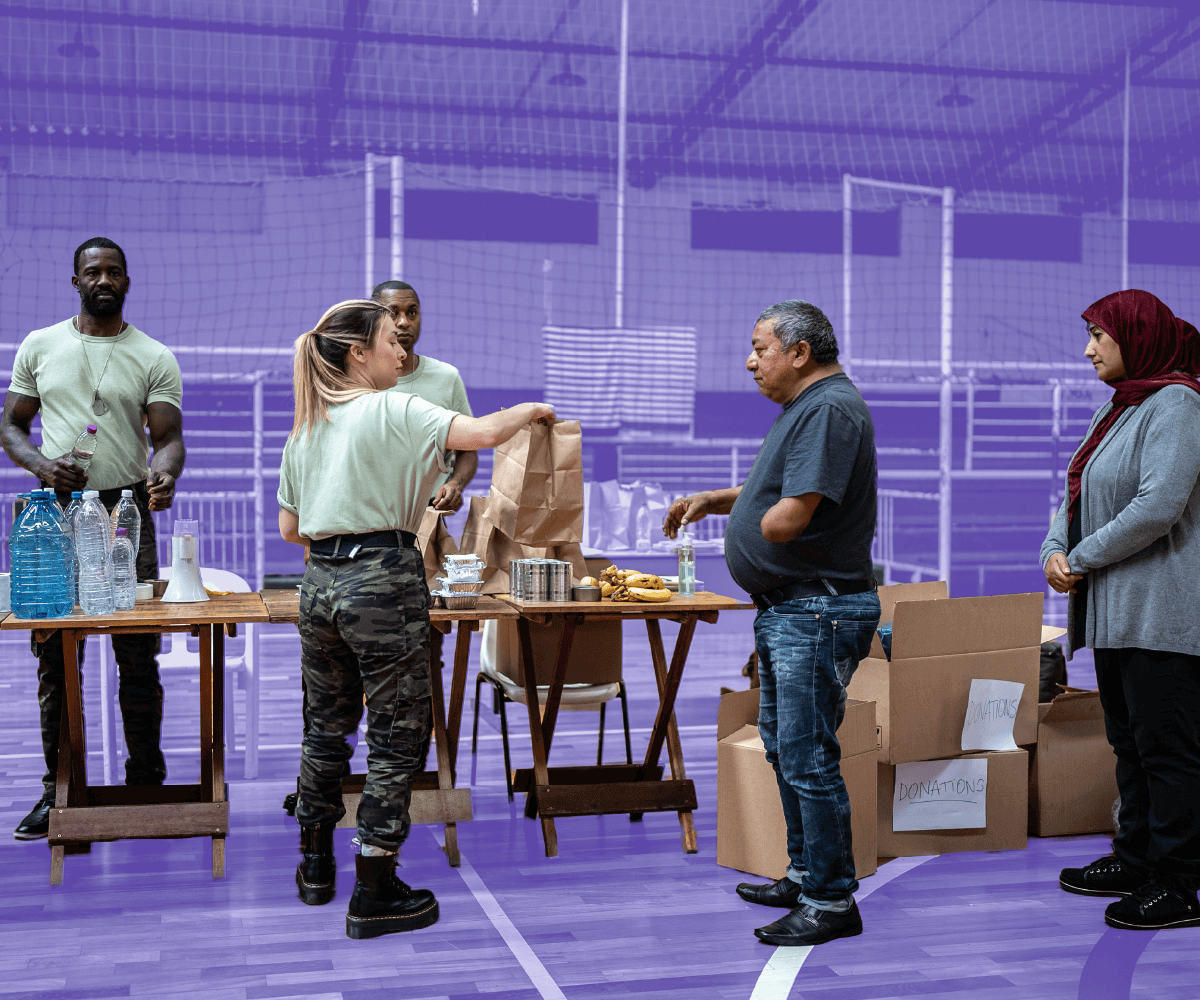
Background
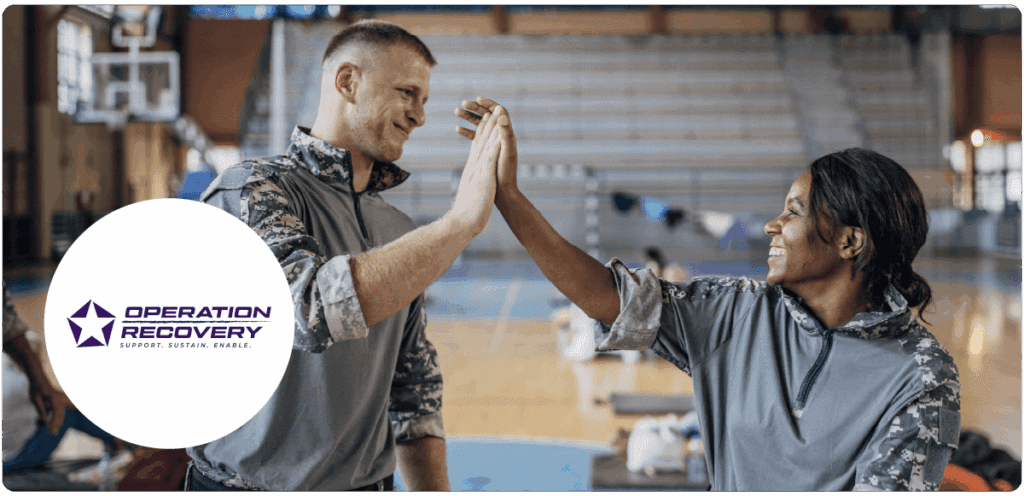
When chaos unfolded, Apricot gave volunteers the secure, unified system they needed to coordinate evacuations and deliver aid.
Operation Recovery is a nonprofit built by veterans, first responders, and volunteers determined to protect allies left behind in Afghanistan. Born out of online chat rooms during the U.S. withdrawal in August 2021, the organization quickly transformed from an informal network into a global humanitarian response team.
Their mission is twofold: to rescue and resettle allies at risk, and to build sustainable futures for those displaced. In its first months, Operation Recovery supported thousands of Afghans seeking safety, work that required rapid coordination, secure systems, and the ability to act under extraordinary pressure.
Customer profile
Product: Bonterra Apricot
Sector: Nonprofit
Vertical: Human Services
Challenge
The team faced an unprecedented humanitarian crisis. Within days of the withdrawal:
- Security risks mounted: The Taliban destroyed physical documents, erasing proof of employment with the U.S., NATO, and NGOs. Volunteers also needed to shield their own identities while managing sensitive cases.
- Data was fragmented: Information came through spreadsheets, text messages, emails, social media platforms, and even handwritten notes. Volunteers struggled to reformat documents into a structure the U.S. government could accept.
- Language and access barriers: Families communicated in Dari or Pashto, often with limited internet connectivity. Managing multiple scripts and devices complicated the intake process.
- Staff strain: Volunteers worked through the night, passing around Excel spreadsheets at kitchen tables. The emotional toll described by leaders as “moral injury” — made burnout a constant threat.
It was clear that manual systems and piecemeal tools couldn’t sustain the mission.
Solution: Bonterra Apricot
Operation Recovery turned to Bonterra Apricot, the secure, configurable system designed to bring programs, people, and partners together. Within just 60–90 days, Apricot was up and running fast enough to keep pace with the urgency on the ground.
How Apricot helped Operation Recovery succeed:
- Custom intake forms in Dari, Pashto, and English allowed families to share critical details directly from phones or shared devices.
- Secure, role-based access protected both participants and volunteers, while maintaining compliance with government standards.
- Centralized data management enabled volunteers to collect, store, and output complex information for the U.S. Department of State in an approved format.
- Collaboration at scale: A single, always-available hub gave 150+ volunteers and staff the visibility they needed to divide work, prevent duplication, and move cases forward.
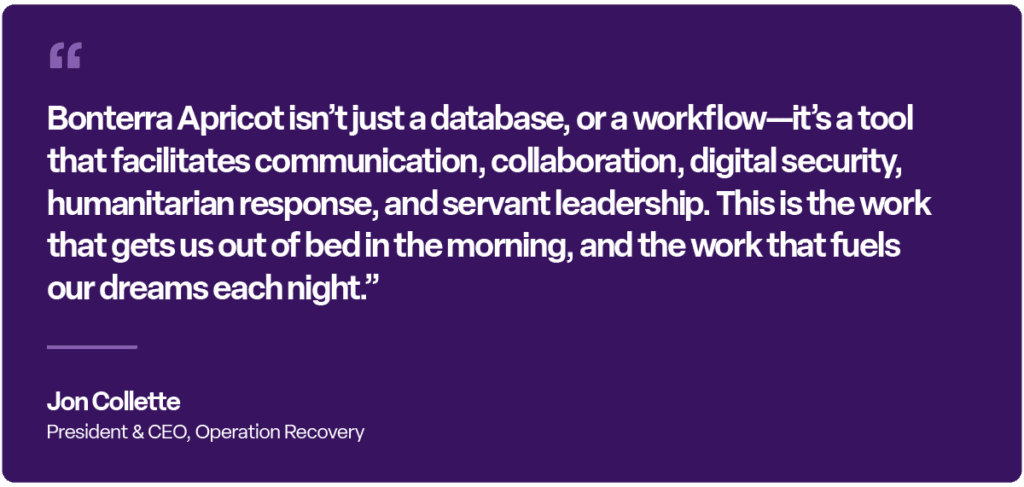
Outcomes
Apricot quickly became the backbone of Operation Recovery’s lifesaving work:
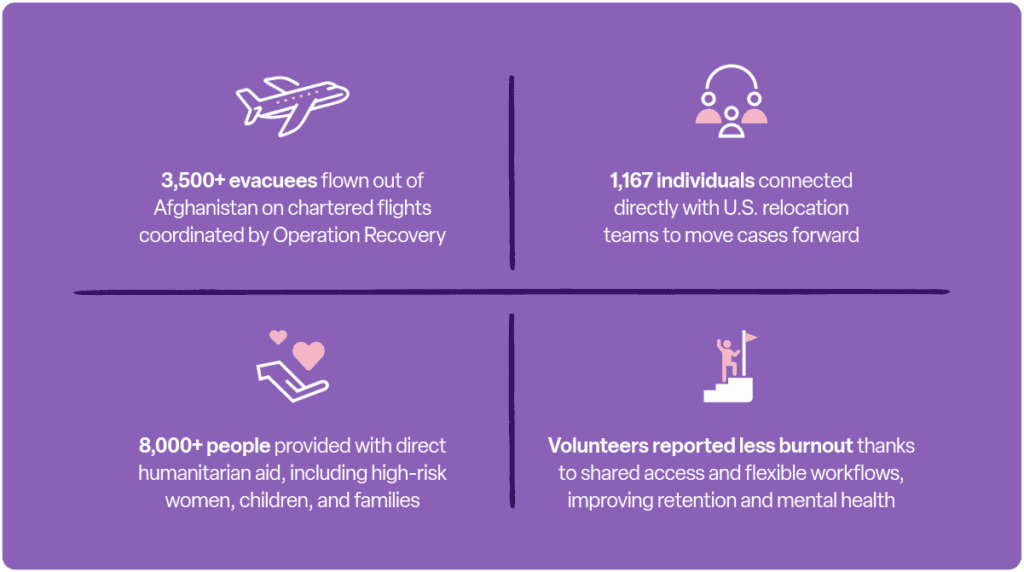
By giving stranded families, a secure way to update their immigration cases and ensuring information reached the right agencies, Apricot created a lifeline in a moment of chaos.
Why it matters
Apricot became the backbone of Operation Recovery’s humanitarian mission, connecting people in hiding, volunteers around the world, and U.S. agencies working to bring allies to safety. More than a data repository, it unified communication, coordination, and reporting, bridging thousands of complex cases across languages, time zones, and security risks. Its flexibility allowed bilingual forms in Dari, Pashto, and English to function even in low-connectivity environments, while secure, role-based access protected both participants and volunteers.
By giving 150+ staff and volunteers a single, always-available system to collect, share, and act on critical information, Apricot reduced burnout, increased efficiency, and helped the team scale their impact in record time. In just three months, they coordinated nine evacuation flights, connected over 1,100 people to relocation teams, and delivered direct aid to more than 8,000. Apricot enabled not just data management—but human connection, trust, and life-saving action at scale.
Learn more
Operation Recovery’s mission continues to grow, supporting veterans, allies, and families in crisis worldwide.
Read the full case study PDF for the complete story of how Apricot helped Operation Recovery save lives and continue their mission following the Afghanistan withdrawal.

Work with Bonterra



